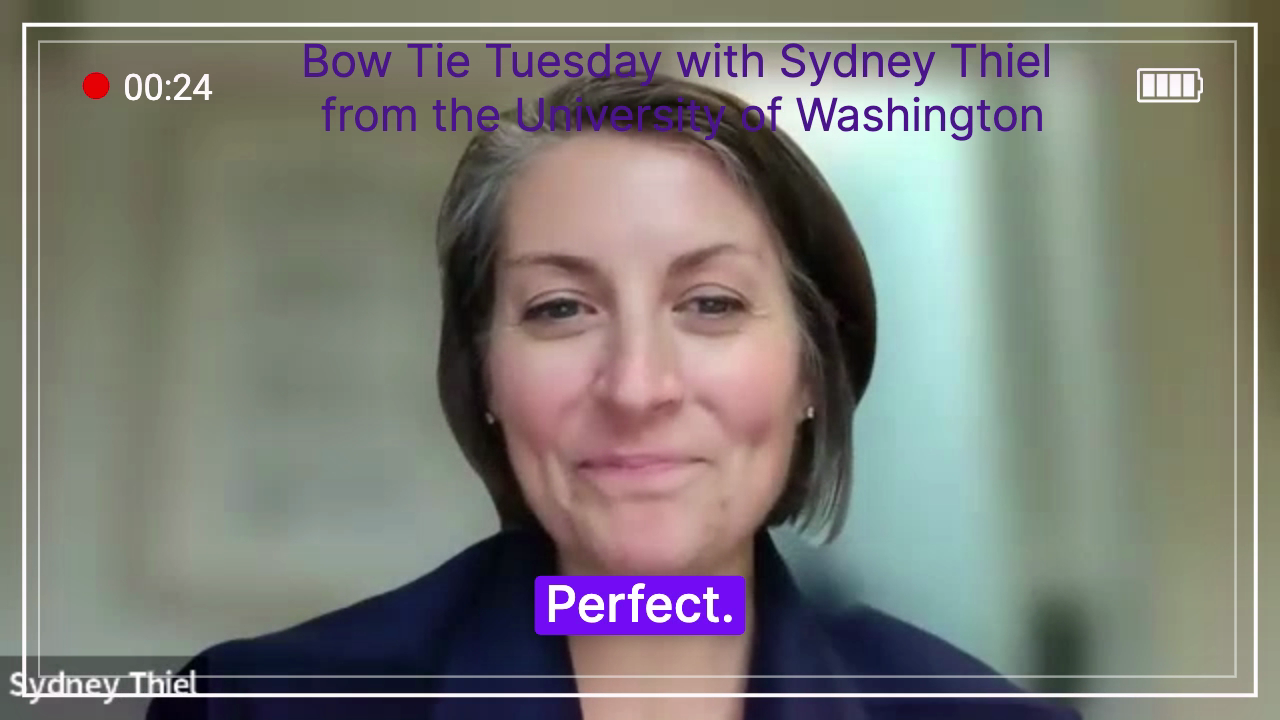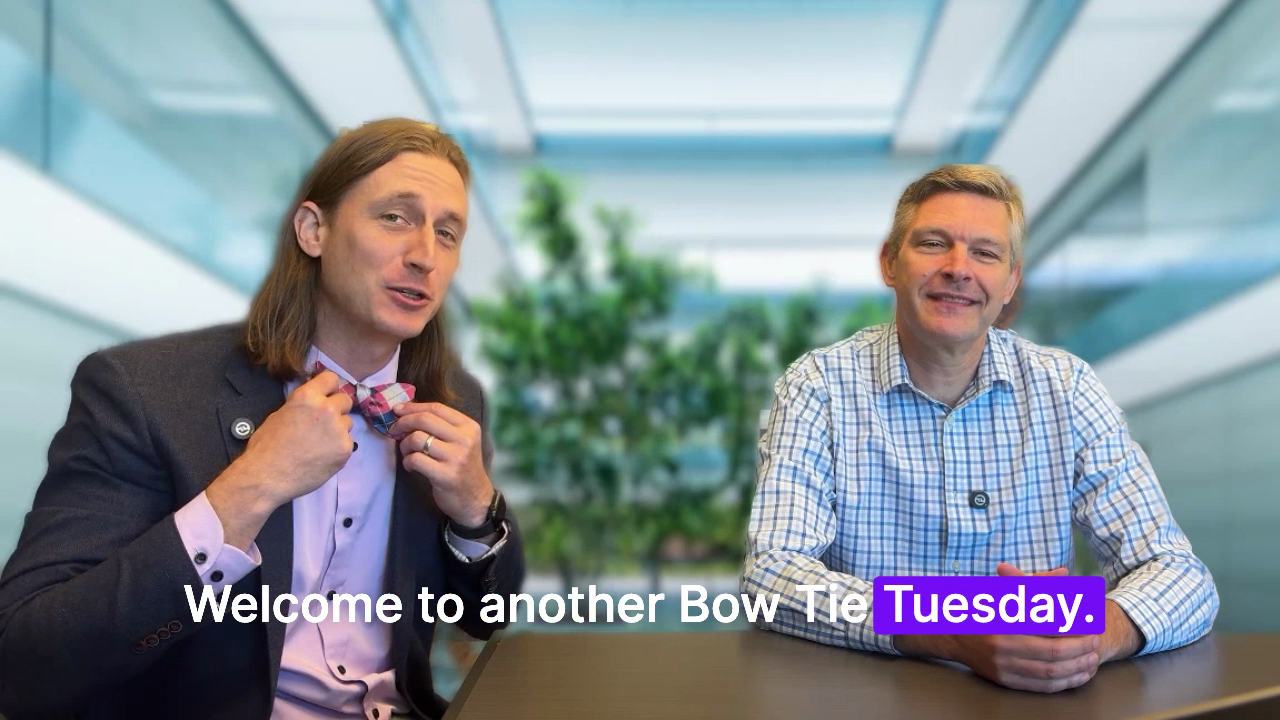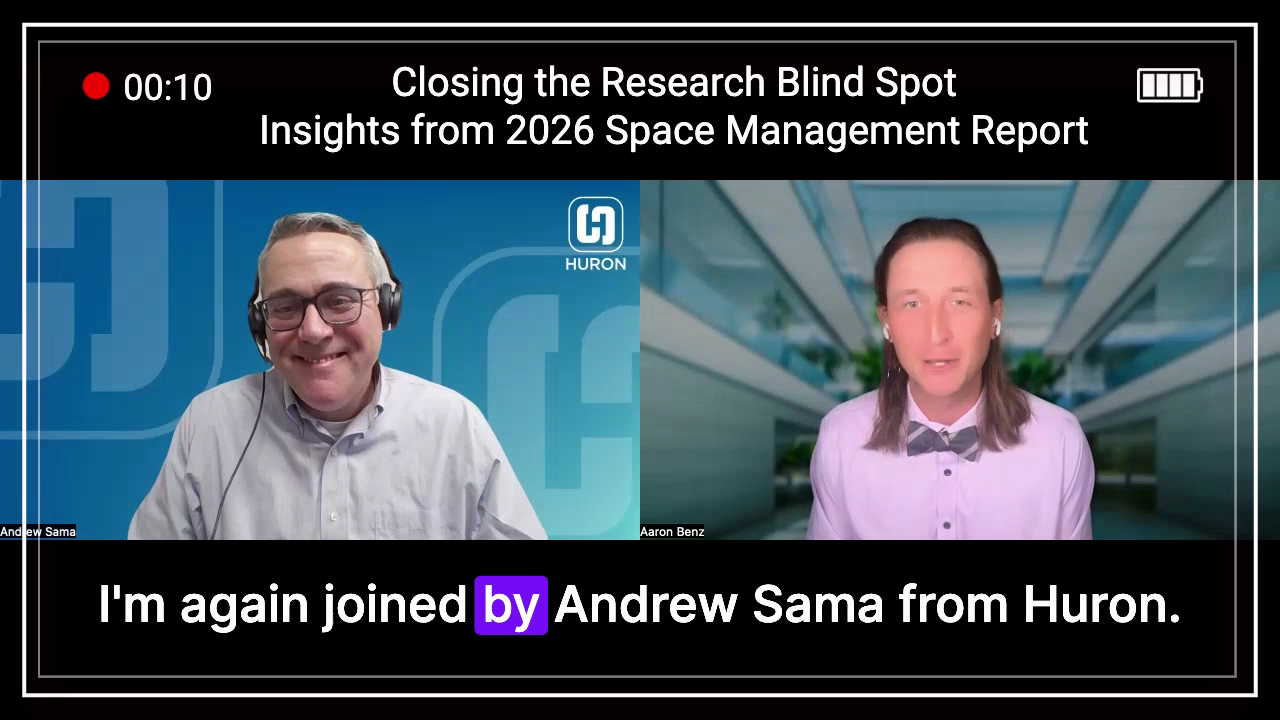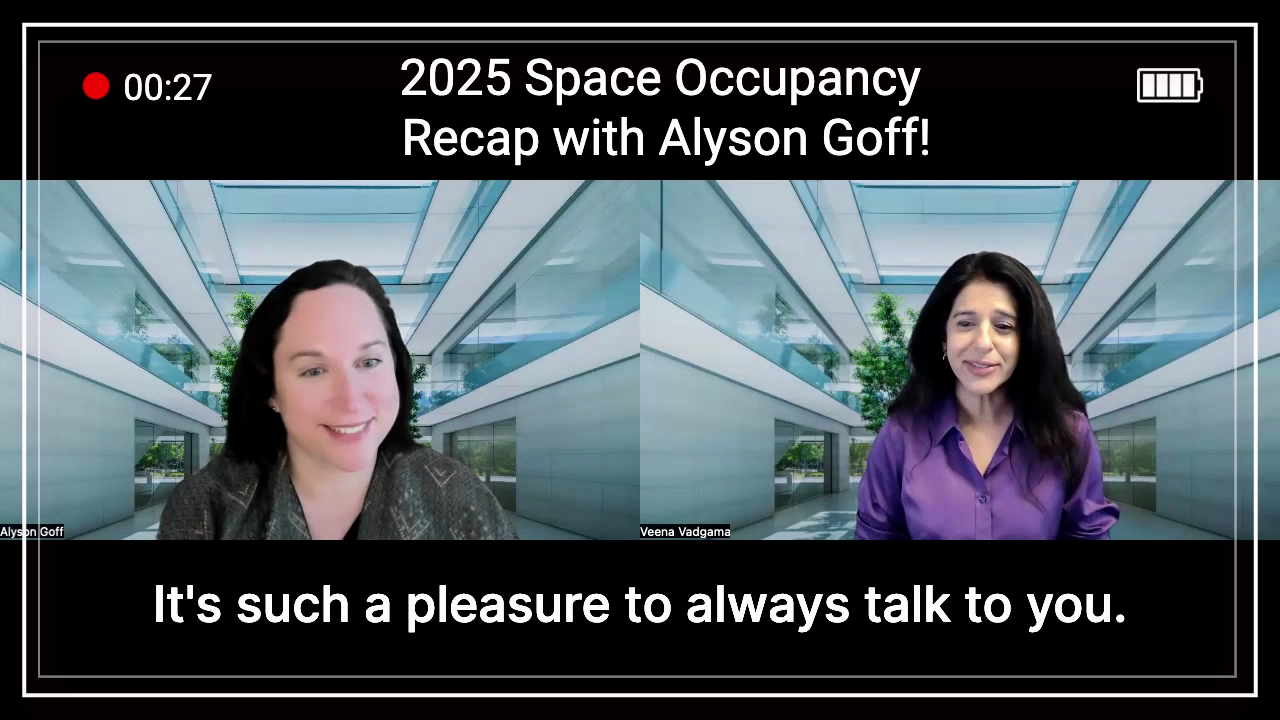8 min read
Rebuilding Space Management at the University of Washington: Higher Ed Space & Occupancy Analytics
 Veena Vadgama
:
Updated on November 20, 2025
Veena Vadgama
:
Updated on November 20, 2025

Alyson Goff: Welcome to another Bow Tie Tuesday. If your institution is trying to get its arms around space management, today's conversation will hit home. The University of Washington is rebuilding its program.
It's not finished, not perfect, but UW is embracing the journey. I'm joined by Sydney Thiel to talk about what this looks like. Sydney, welcome to Bow Tie Tuesday, and thank you for joining us.
[00:00:21] Sydney Thiel: Happy to be here. Thanks for having me.
[00:00:23] Speaker: Perfect. Great. Well, we're gonna jump into our questions. And so starting off, for those who may not know UW uws, uh, environment, can you briefly describe your campus context and the space challenges that you're working within?
[00:00:37] Sydney Thiel: Sure. So those who may not be familiar, the University of Washington is a public R1 research institution. We have three campus locations. Um, it's a large institution with over 60,000 students across three primary campuses. Um, and we use a single, uh, space database to track all of our [00:01:00] space across campuses, field stations, leased facilities.
[00:01:04] Speaker: And how much square footage are we talking collectively?
[00:01:07] Sydney Thiel: Collectively across the enterprise, uh, we manage, uh, just under 32 million gross square feet. That includes our lease footprints. Mm-hmm. Um. As well. So, we track all of that within our inventory, uh, largely because it helps us paint a full picture.
[00:01:26] Alyson Goff: That's not a little bit of a, a little bit of space. Little bit of space, yes. Yeah. Um, so when you began this effort, what did the space landscape look like? What were you ensuring in terms of data processes or culture?
[00:01:40] Sydney Thiel: So I, uh, stepped into my current role about a year ago, um, almost exactly a year ago.
And I think one of the biggest challenges was that the program lacked a formal governance structure. Although, our office is tasked through an executive order to manage space on behalf of the [00:02:00] provost. The kind of support from campus leadership was largely had been kind of largely removed over the years.
And so I think that was kind of one of the foundational elements that I identified really early on to say. We need to reestablish this connection and make sure that we're in alignment in terms of approaches, values, principles, and expectations.
[00:02:28] Alyson Goff: Yeah, that, your story resonates with me 'cause that it's lived it myself.
So one of the things that I, I love about just, um, you know, your, your honesty is that this isn't finished, this is evolving. Um, and so I'm curious kind of, you know, if you could further elaborate on kind of what pushed you to, even start down, you know, this path when you didn't have a full roadmap identified and so, kind of you're building the plane as you're flying.
So, you know, kind of talk us through, uh, that logic.
[00:02:58] Sydney Thiel: So I would say that [00:03:00] a space management program is never finished. It's ever evolving. And despite never having stood one up before, I knew that it was not going to be a static document. And so with that in mind I just sort of recognized both the complexity of the issues that go into establishing a program and the need for improved communication to get buy-in.
This is maybe related to your last question, but in terms of what was inherited, there was a lot of, um, uh, sentiment of distrust in the data. It was more of a verify and then trust as opposed to taking the data at face value. And so, um, understanding that, the skepticism associated with the program and the database that we have as a tool that was lacking really kind of prompted the approach [00:04:00] that let's just jump in and try to start to reorganize and make sense of it.
My, my nature when faced with something that is much bigger than myself is just to jump in and seek help and support from colleagues as opposed to trying to figure it all out the way that I might invent in my head.
And then realized later that there was partial, you know, partial thinking or even flawed thinking with those initial steps. So. I'm just a big proponent, proponent of jumping in even before you think you're ready because you might never be ready.
[00:04:45] Alyson Goff: Absolutely. Uh, yeah, we, we know things never slow down in higher ed.
Um, so I, I really appreciate that that perspective. And, um, so I wanted to pick up on a thread data. It's my, one of my favorite topics. Mm-hmm. Um, but I was curious, you know, [00:05:00] were there any, um, core data elements or metrics that kind of became non-negotiables for gaining clarity as to, you know, how your space was being used, you know, you know, did you prioritize certain, uh, data points as you started this rebuild?
[00:05:17] Sydney Thiel: I would say one of our non-negotiables was reconsidering how we classify space. We did spend some time, reviewing how we defined space and the criteria for what. Types of space met one classification versus another, but we never considered the possibility of starting from scratch, mostly because, uh, it would be just a monumental undertaking to do so when the entirety of our.
Enterprise is built on this the, the classification system that we use. So we kind of took that as our baseline that we were going to build from and perhaps [00:06:00] tweak and modify slightly from there. But by and large, keeping it as a non-negotiable. Also because so much of our reporting stems from it that it was sort of too big to reconsider, I suppose. Um, but at the same time we did as we were looking at. How we define and, and guide the classification of space. We did also at the same time based on feedback that we received from our campus partners about the burdensome nature of space management is tried to kind of scrutinize what we were asking for and what we were expecting, uh, from others.
Um, will hopefully go a long way with just clarifying expectations and understanding.
[00:06:47] Alyson Goff: So related to that, you know, thinking bigger picture, um, about culture change, you know, we know that doesn't happen overnight. And I know, you know, change management was, you know, really important, um, as you [00:07:00] all were moving through this process. So I'm curious kind of what shifts are you beginning to see and what is still very much a work in progress?
[00:07:09] Sydney Thiel: My, one of my main goals with just interpersonal interdepartmental relationships is with partnership building. So early on in my role, I ha held a lot of introductory sessions. Those were mostly just to, introduce myself in a new role, but also to understand how different units and departments, uh, manage their space, where their pain points are.
And, um, so that I started to develop kind of a more broad understanding about the culture and environment surrounding space management. I think that those, uh, sessions, uh, have gone a long way. One just for just to have others be aware of our office as a resource and, um, the openness, uh, and desire of wanting to [00:08:00] build those partnerships.
And I think that's all really part of trust. So, um making sure that people understand that they know who to, that they can go to for questions and guidance on space management and that it will be received friendly and in a helpful way. Sounds simple, but I think has gone a long way in terms of I think seeing a shift in, you know, seeing the needle move a bit in terms of progress.
[00:08:29] Alyson Goff: Open and transparency. Two, two words that I use often when I talk about space management programs. Mm-hmm. Um, and I, you know, I, I think really I, I love the emphasis on that partnership building because you know, I, I often tell people there are h uman beings behind any data point that you look at, space management in many ways is this data puzzle, but there are still people that will be impacted by any decision made. And so making sure that, you know, you build that connection is critical for [00:09:00] success. Excellent.
Well, what have been, uh, your early wins or confidence builders, even while you continue to grow the broader program?
[00:09:12] Sydney Thiel: I will I'm reluctant to say that we have had early wins, but I feel like there is, are nuggets of progress. So I'll, I'll phrase it that way. Through the feedback that we have, uh, solicited and heard through the various listening sessions and a lot of research into precedent documents from other institutions no shame and in sharing that we are not entirely crafting this by scratch.
Mm-hmm. Um, we are intentionally looking for fair, sound logical methodologies to manage space and that a lot of probably every public or private institution across this country and beyond is, are challenged with the [00:10:00] same things. We did, we've done a lot of research into peer institutions and as, and used that as both a guide and uh, measuring stick, um, for what, what may help to shape our, uh, program, um, that's taking shape and right now and what we are loosely working title calling a "Space Management and Stewardship Manual," and really a lot of emphasis on that word stewardship and, um, trying to reframe the mindset of space as an entitlement to space as what is best for the university.
And how we can all work better with more of a, a collaboration, collaborative mindset toward space. So it is a document that is merges policy, procedures principles. These are working principles about the space our space process and how we allocate it. And it's really kind of being developed [00:11:00] through what I've called the good neighbor lens.
Is it meaning, is it fair? Is it reasonable and is it clear? And, uh, that process has been actively solicited for feedback amongst our campus partners, um, through that lens and to make sure that we're not, uh, developing something that someone says, like, this is hypocritical, this doesn't, you know, you're saying one thing here and another, anyway, um, trying to make it a, a peer reviewed, uh, document so that it is a s best as it can be and not created solely in a vacuum. Um, the intent with this is to then seek support from the provost soon, once we've kind of gathered the, um, what I'd call kind of the core feedback, core peer feedback. And hopefully, uh, it will be ghost written on behalf of the provost office.
I think that is key to it [00:12:00] being seriously considered and used in the future.
[00:12:04] Alyson Goff: Absolutely. I love the good neighbor lens. I, I haven't heard it stated like that before, so I will probably have to borrow that in the future, but, you know, I appreciate that perspective and also just the process that you plan on working through.
Okay. So as we, as we wrap up you know, thinking about institutions that feel like they don't have it all figured out, what's the first actionable step that you would recommend they take?
[00:12:30] Sydney Thiel: I would say, and, and you, you may have actually said this at the very beginning, but so many institutions face the same challenges, and I have yet to meet one that has it all figured out.
So I think the struggles are common. The issues are common. The topics are common. And so I guess my recommendation is to just jump in, ask colleagues what doesn't work. If you're just starting, define the [00:13:00] use cases that you have for why you're developing a space management program so that it's being developed in concert with what it needs to be used to used, t o help support I am an advocate of reaching out to peer institutions. It's a little bit, it can feel humbling because you're, as you do so, you may feel like, oh, I don't have this all figured out, and it's going to be so clear. And but honestly, nobody does. And I feel like the conversations around the shared challenges often either helps to validate, um.
That they are sh shared challenges or, um, sometimes sparks a nugget or a kernel of an idea that can help you take that next step along. So build the program with others not in a vacuum. And also, uh, just going back to my comment about provost support, um, making sure that you are building it with that support from the top.
So I hope [00:14:00] that's. Helpful. Just jump in really.
[00:14:03] Alyson Goff: No, absolutely. Well, Sydney, thank you so much for your time today. I think so many other institutions, whether they have a space management program in place or thinking about one, we'll find, um, this information helpful. Um, and what we can do is, uh, we'll tag Sydney in this, uh, LinkedIn post, and so, uh, you can contact her.
You know, I think this think tank, uh, approach of just their, you know, questions around you know, how they're, you know, proceeding. Um, and if you have any other thoughts, please feel free to drop them in the comments. But this has been another Bow Tie Tuesday. Thank you so much and take care.
[00:14:43] Sydney Thiel: Thanks Alyson.

7 min read
Do Your Spaces Drive the Mission? Space Planning with Chris Morett
🎀 Bow Tie Tuesday is here. When campus space truly drives the mission, everything works better. In this week’s conversation, Chris Morett,...


